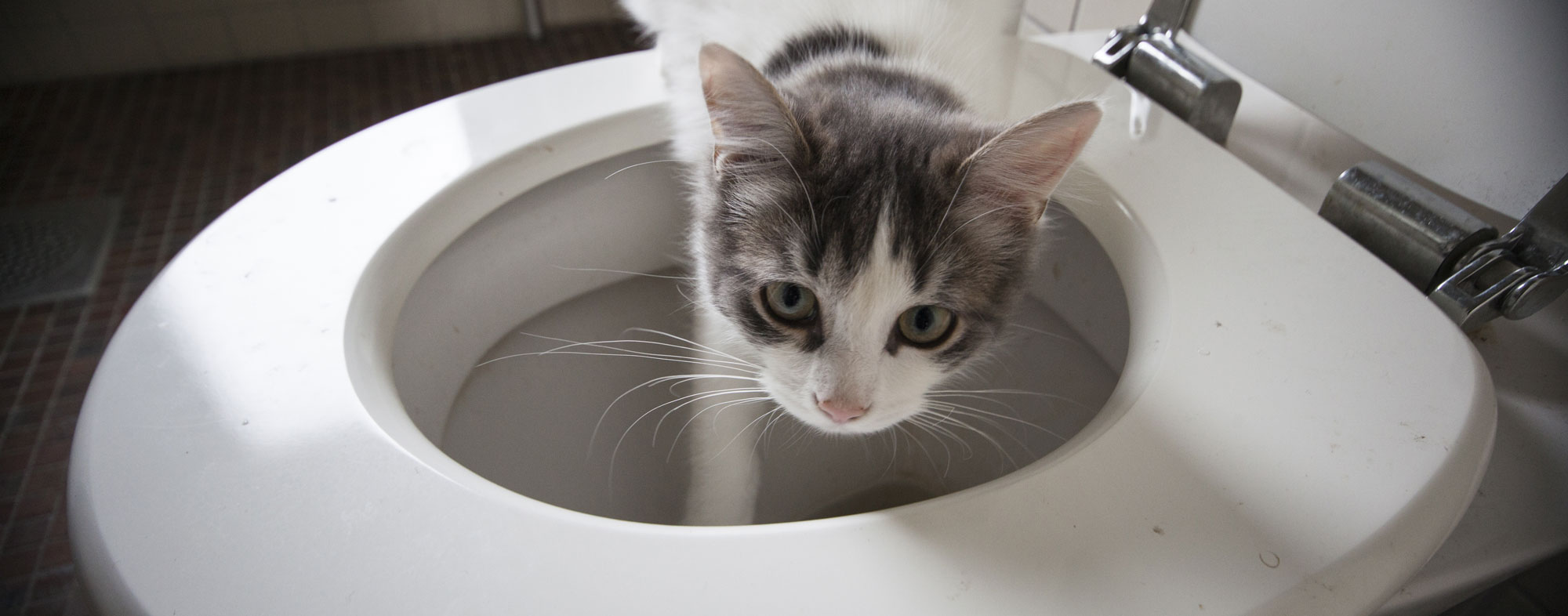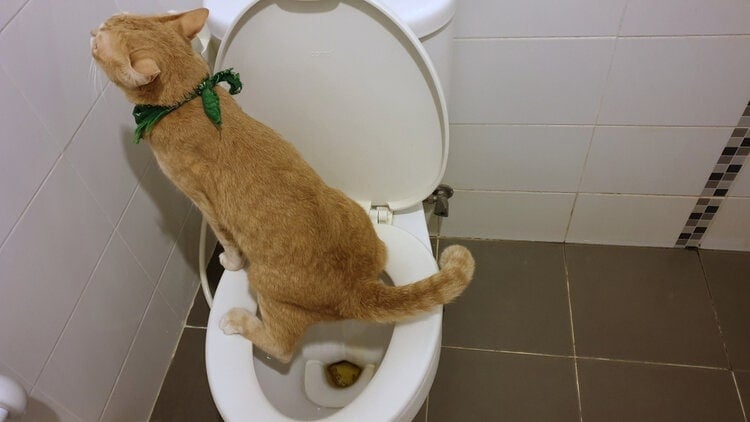Understanding the Harms of Flushing Animal Waste Down the Toilet
Understanding the Harms of Flushing Animal Waste Down the Toilet
Blog Article
Just how do you really feel on the subject of Can You Flush Dog and Cat Poo Down the Toilet??

When it comes to getting rid of waste, particularly animal waste, many people frequently consider the hassle-free choice of flushing it down the toilet. However, this apparently easy option can have significant consequences for the atmosphere and public health. In this short article, we'll discover why flushing pet waste down the bathroom is a poor idea and supply alternate approaches for proper disposal.
Intro
Appropriate garbage disposal is essential for maintaining ecological sustainability and public health. While it may seem harmless to flush animal waste down the commode, it can cause numerous issues, both for the atmosphere and human health.
Dangers of flushing pet waste
Environmental impact
Flushing animal waste presents unsafe microorganisms and microorganisms right into waterways, which can negatively influence aquatic ecosystems. These virus can infect water sources and damage marine life, interfering with delicate communities.
Public health issues
Animal waste consists of damaging bacteria such as E. coli and Salmonella, which can present severe wellness risks to people. Flushing pet waste down the toilet can infect water products, leading to the spread of illness and infections.
Alternatives to flushing
Instead of flushing pet waste down the bathroom, there are several different disposal techniques that are more environmentally friendly and sanitary.
Composting
Composting pet waste is an environmentally friendly way to get rid of it. By composting, organic matter is broken down into nutrient-rich soil, which can be used to fertilize yards and plants.
Landfill disposal
Throwing away pet waste in a land fill is another option. While not as eco-friendly as composting, it is a much safer choice to flushing, as it protects against the contamination of water sources.
Animal waste disposal systems
There are customized animal garbage disposal systems offered that securely and hygienically get rid of pet waste. These systems typically utilize enzymes to break down waste and get rid of smells.
Steps to correct pet garbage disposal
To guarantee proper disposal of animal waste, comply with these actions:
Scooping and getting waste
On a regular basis scoop and bag animal waste using eco-friendly bags. This protects against waste from polluting the environment.
Utilizing marked waste bins
Dispose of bagged pet waste in assigned waste bins, such as compost containers or landfill bins. Stay clear of flushing it down the commode whatsoever prices.
Cleansing can and family pet locations on a regular basis
On a regular basis tidy litter boxes and animal locations to prevent the buildup of waste and bacteria. Usage pet-safe cleaning items to maintain health.
Advantages of correct disposal methods
Taking on correct disposal techniques for animal waste uses numerous advantages:
Lowered environmental pollution
Correct disposal techniques reduce the threat of environmental pollution, protecting waterways and ecosystems from contamination
Lessened risk of water contamination.
By avoiding flushing pet waste down the bathroom, the danger of water contamination is significantly decreased, securing public health.
Enhanced hygiene and health
Appropriate disposal techniques advertise much better cleanliness and hygiene, developing a more secure environment for both humans and pets.
Final thought
Finally, flushing animal waste down the commode is unsafe to the environment and public health. By taking on different disposal techniques and following correct waste monitoring practices, we can decrease the negative effect of pet waste and contribute to a cleaner, healthier planet.
What To Do With Dog Poo – The Do's And Don'ts Of Disposing Of Faeces
Dog poo bins
Some councils provide dedicated dog waste bins in popular dog-walking areas that can take dog poo that has been bagged but you can legally dispose of dog waste in any public litter bin, as long as it is securely bagged. This also applies to your wheelie bin at home.
Do not flush
Water companies do not recommend flushing dog faeces down the toilet because certain parasites can survive the water processing treatment and are potentially harmful to humans. You should also never consider flushing dog poo that has been bagged down the toilet as the bags will not break down and instead create severe blockages in the sewage system.
In the woods
The Forestry Commission promotes a ‘stick and flick’ method for dealing with waste in the woods. This means finding a stick and using it to flick any poo from off the path so that it is out of the way of other walkers. You could also bury it as long as it is not in an area where there might be livestock.
Livestock
Parasites found in dog poo can be transmitted to livestock if they inadvertently eat infected faeces that has been left on grazing land. This could result in the death of sheep or abortion in cattle so you should always make sure you pick up your dog’s waste in fields where livestock could be present.

On a regular basis tidy litter boxes and animal locations to prevent the buildup of waste and bacteria. Usage pet-safe cleaning items to maintain health.
Advantages of correct disposal methods
Taking on correct disposal techniques for animal waste uses numerous advantages:
Lowered environmental pollution
Correct disposal techniques reduce the threat of environmental pollution, protecting waterways and ecosystems from contamination
Lessened risk of water contamination.
By avoiding flushing pet waste down the bathroom, the danger of water contamination is significantly decreased, securing public health.
Enhanced hygiene and health
Appropriate disposal techniques advertise much better cleanliness and hygiene, developing a more secure environment for both humans and pets.
Final thought
Finally, flushing animal waste down the commode is unsafe to the environment and public health. By taking on different disposal techniques and following correct waste monitoring practices, we can decrease the negative effect of pet waste and contribute to a cleaner, healthier planet.
What To Do With Dog Poo – The Do's And Don'ts Of Disposing Of Faeces
Dog poo bins
Some councils provide dedicated dog waste bins in popular dog-walking areas that can take dog poo that has been bagged but you can legally dispose of dog waste in any public litter bin, as long as it is securely bagged. This also applies to your wheelie bin at home.
Do not flush
Water companies do not recommend flushing dog faeces down the toilet because certain parasites can survive the water processing treatment and are potentially harmful to humans. You should also never consider flushing dog poo that has been bagged down the toilet as the bags will not break down and instead create severe blockages in the sewage system.
In the woods
The Forestry Commission promotes a ‘stick and flick’ method for dealing with waste in the woods. This means finding a stick and using it to flick any poo from off the path so that it is out of the way of other walkers. You could also bury it as long as it is not in an area where there might be livestock.
Livestock
Parasites found in dog poo can be transmitted to livestock if they inadvertently eat infected faeces that has been left on grazing land. This could result in the death of sheep or abortion in cattle so you should always make sure you pick up your dog’s waste in fields where livestock could be present.

I hope you liked our topic about 10 Things You Should Never Flush Down The Toilet. Thanks a ton for spending some time to browse our short article. So long as you enjoyed our blog posting kindly remember to pass it around. We thank you for reading our article about Don't Flush Your Pets Poo Down The Loo, Vet Warns.
Call Today Report this page